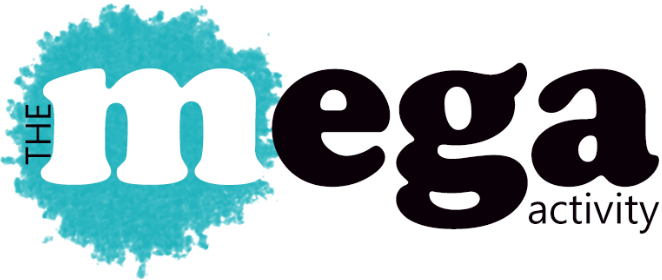A survey conducted by the Small Business Administration found that 36% of small business owners do not have websites. This is a huge opportunity for them to use website marketing to attract new customers and expand their business.
Search engine optimization (SEO), social media marketing and email marketing are just some of the strategies and tactics that website marketing includes. Website marketing is designed to increase traffic to your site, engage potential customers and convert them into paying customers.
Website Marketing
Website marketing is an example of digital marketing. It aims to promote brands or businesses online. The goal is to drive sales and revenue by using various online channels. Take a look at how website marketing works.
- SEO is the process of optimizing a website so that it appears higher on search engine result pages. This includes using relevant keywords, producing quality content, as well as building backlinks for your website. Your website should be more visible to customers who are searching for similar products and services.
- PPC advertising is the practice of paying for your ads to be displayed on search engines or other websites. It is a cost-effective method of reaching potential customers. You only pay if someone clicks your ad. Google AdWords has become one of the most widely used PPC platforms.
- Facebook, Twitter and Instagram are all powerful platforms for engaging and reaching potential customers. Social media marketing is the process of creating and sharing interesting and relevant content with your audience, engaging with followers and building a social community.
- Sending promotional messages and newsletters via email to a subscriber list is called Email Marketing. Email marketing is an effective and targeted way to reach customers. You can segment your database and tailor your message to specific groups.
Create a marketing plan for your website
A marketing plan is essential to the success and growth of any website. A marketing plan that is well-crafted can help you increase your sales, attract more visitors and generate more leads. These are the steps you can take to create a website marketing plan:
Establish marketing goals
After you have done a SWOT and understood your audience, you need to set marketing goals. Your marketing goals should be specific and measurable. They must also be relevant, time-bound, and achievable. Your goal could be to increase the traffic on your website by 25% in the next six month.
Choose Marketing Strategies
You need to select the most effective marketing strategy for your website based on your SWOT analysis and target audience. SEO, PPC, social media, email marketing and content marketing are all possible.
Create a Budget
Determine how much you’re willing to spend for marketing, and then allocate your budget towards the most effective strategies. You can optimize your marketing budget and avoid unnecessary expenditures.
Website Optimization: Strategies to Improve User Experience
Website optimization is the process of improving a website’s performance in order to improve user experience.
- Improve website speed:Website performance is an important factor for user experience. Slow websites can result in increased bounce rates, decreased engagement and fewer conversions. You can increase website speed by optimizing your images, reducing the server response time and enabling cache in browsers.
- Optimize Web Design:A website that is well designed can improve the user experience. The website’s layout must be clear, concise and easy to use. It’s also important to have a responsive design so that the website can be accessed on any device.
- Use clear and concise copy: The text on your site should be easy to read, concise and clear. Avoid jargon and make sure your message is consistent throughout the website. To make your text easier to scan, use bullet points and headings.
- Simplify forms: Forms can be frustrating to users if overly complicated. Reduce the number of required fields on your forms and use clear, concise instructions.
Search Engine Optimization Strategies to Rank High
Search engine optimization (SEO), also known as search engine marketing, is the process of optimizing your site to appear higher in search engines like Google, Bing and Yahoo.
- Keyword research: Keyword search identifies the keywords and phrases that users use to find your website. Use tools like Google Keyword Planner and SEMrush to identify relevant keywords.
- On Page Optimization: On page optimization is the process of optimizing both your website’s HTML source code and content. This includes optimizing header tags, image alt tags, meta descriptions and title tags.
- Content Creation: Creating relevant and high-quality content is essential for SEO. Your content must be engaging, original and informative. Keywords can be used to aid search engines in understanding the content.
- Link building: Link-building is the process by which you acquire backlinks from other websites to your site. More quality backlinks on your website means a higher ranking in search engines. Link building strategies are important and should never be ignored. Start your strategy by taking advantage of the advantages of outsourcing link building.
- Technical Search Engine Optimization: Technical search engine optimization involves optimizing your website’s technical aspects, such as its speed, responsiveness to mobile devices, and structure. Your website must be technically sound so that it can be crawled by search engines and indexed.
- Local Search Engine Optimization: Local search engine optimization involves optimizing your site for local queries. This includes optimizing the Google My Business profile of your website, creating local citations and creating local content.
- Social media optimization: Social Media optimization is the process of optimizing your profiles on social media to increase your website’s exposure and social media engagement. This includes optimizing profiles with keywords, producing high-quality content on social media, and building backlinks from social media to your website.
Content Marketing – How to Create Valuable Content
Content marketing is a process that involves creating and distributing engaging and valuable content in order to attract and retain your target audience. Content marketing is designed to build a relationship between you and your audience, increase brand awareness, as well as drive profitable customer actions.
- Develop Content Strategy: A strategy for content marketing outlines your goals and objectives. It is important to identify your target audience and content topics. You should also determine the best distribution channels for your content.
- Create High Quality Content: Your material should be informative and engaging. Mix up your formats to keep content interesting and fresh.
- Search Engine Optimization (SEO): It is important to optimize your content for search engines in order to make it discoverable by your audience. Optimize meta tags and descriptions and use relevant keywords to boost your search engine rankings.
Social Media Marketing: Leveraging platforms for your website
- Select the Right Platforms: There are many social media platforms and it is important to select the most relevant ones for your target audience. Facebook, Instagram and Twitter are all popular platforms for social media marketing.
- Optimize your Profiles: Ensure that your social media profiles look professional and are visually appealing. Include high-quality photos, a brief description of your company, and a link to the website.
- Create Engaging Social Media Content: Your content on social media should be informative, engaging, and relevant for your target audience. Keep your content interesting by using a variety of formats such as images, videos and live streams.
Influencers, industry leaders and affiliate marketing
Affiliate marketing is an effective marketing strategy that involves businesses partnering with industry leaders or influencers to promote products and services. Here are a few tips to help you build relationships with industry leaders and influencers for a successful affiliate marketing campaign:
- Find the Right Partners: Identify influencers and leaders in your industry who can help you reach the audience that is right for your brand. Find partners with a large following, high engagement and an audience that is relevant.
- Build Strong Relationships: Build strong relationship with your partners through social media engagement, comments on their blog, and attendance at industry events. Show an interest in the work of your partners and look for ways to provide value to their audience.
- Offer competitive commissions: Offer your partners competitive commissions as an incentive to promote your product or service. Offer exclusive discounts or deals to their followers in order to increase conversions.
- Provide High Quality Resources: Your partner with high quality resources such as product descriptions, images, and marketing material. Make it simple for your partners to promote your services or products and make sure that all information is accurate and up-to date.
Related: 3 justifications for selecting website development company
Use video to promote your website
Video marketing is a great way to engage your audience and promote your website. Video marketing can be streamlined using many tools.
- Identify your goals: Identify your video marketing campaign’s goals, such as increasing traffic to the website, increasing conversions, and building brand awareness. You can then create content that is tailored to your audience, and meets your business goals.
- Create High Quality Content: Produce high-quality videos which are informative, engaging and visually appealing. To ensure high-quality videos, use professional software and equipment.
- Optimize your Videos for SEO: Optimize videos for search engines using keywords relevant to your titles, descriptions and tags. Your videos will rank higher and bring more traffic to your site.
- Share Videos on Social Media: Share videos on social media sites such as Facebook and Twitter. You will reach a larger audience and get more engagement.
Metrics for Website Performance Evaluation
Website Traffic
The number of people who visit your website is called Website Traffic. This metric helps you understand the health of your site and identify trends in visitor behaviour.
The Time on Site
The average time visitors spend on a website is called the Time on Site. This metric can be used to evaluate how engaging the content on your website is.
Page Views
The number of page views is the number times that a specific webpage on your site has been viewed. This metric can help you determine the most popular pages with your audience.
Referral sources
Referral sources refer to the websites or search engines that send traffic to your site. This metric can be used to identify where your website traffic comes from and the effectiveness of your marketing campaigns.
What Deskera can do for you?
You have a lot of duties to perform as a manager, whether you’re running your own company or managing a team. Deskera CRM allows you to manage contacts, sales leads, and deals. The CRM system can be used to manage customer data, leads, sales negotiations and deal.
The conclusion
Any business that wants to reach out and establish an online presence is going to need website marketing. Businesses can increase traffic, boost engagement and boost conversions by implementing effective strategies for website marketing.
There are many ways to improve your website’s visibility online. From pay-per click advertising and search engine optimization to social media marketing and content marketing.
Read more:




